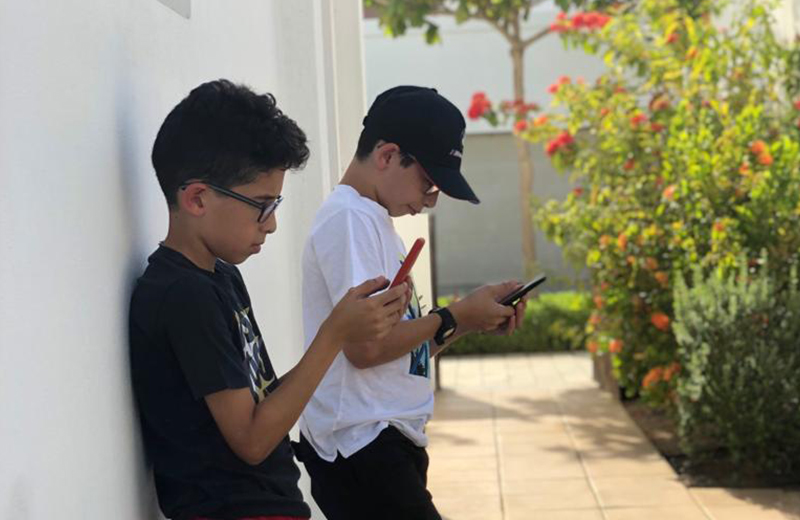Mothers’ Stories
How do I control my children's use of smartphones?

There are endless challenges that we, parents of the 21st century, face. Some are beyond one’s imagination and our children possessing smartphones is one of them!
But what age are children mature enough to own their personal smartphone?
It is essential to realize that once we give our children this opportunity, we are placing a huge responsibility on our shoulders. We have to pave the road for them and guide them into using those phones sensibly.
Unfortunately, there are alarming disadvantages to the excessive use of smartphones and the functions they carry along with them. Firstly, the applications are addictive by nature and one can easily get hooked on them.
This will result in having the child lose interest in previously-loved activities and in turn have less social interaction. Secondly, possessing a smartphone at a young age interferes with the natural growth of the brain and might lead to other health problems.
Finally, the constant exposure to screens impacts a child’s eyesight. Knowing all of this and the many other negative consequences that might arise due to the uncontrolled usage of smartphones, we have to teach and guide our children in knowing how to handle those devices properly.
After all, technology in itself is not bad, but the way it can be used and abused is what causes concern - we know that from experience.
According to the Canadian Pediatric Society, it is advised that children below the age of nine do not possess any smartphones. At this age, they are vulnerable and are unable to deal with any type of cyberbullying. Beyond that, children need to understand that having their own smartphone is a privilege and they need to respect the trust their parents place in them.
After the age of 14, it is advised that the parents keep an open eye on any behavioural differences that might arise in both the mental and physical states of their children.
It is essential, therefore, to set certain rules and regulations consistent with the norms and conduct of each family before purchasing a smartphone.
Here are some tips on helping our children control their use of smartphones: 
Where to use them:
One good strategy is to first set an agreement as to where the child can use their phone. For example, when the family is together for lunch, phones must be set aside. This helps in establishing proper communication and connection as a family. Another good idea is to have them get into the habit of turning their phones off at night and place them outside their bedroom.
When to use them:
Another important rule is to agree on when and how long the child can use their phone. This would vary according to the child’s age and level of maturity. For example, children should not be allowed to use their phone for more than a specific amount of time during the day. The younger the child is, the less the hours they should be allowed on their phones. It is also essential that the child learns to respect the presence of others and the circumstances around them before focusing on their phones.
How to use them:
Here lies our duty, as parents, to successfully be able to guide our children on knowing how to use smartphones responsibly.
One of the best methods that we have implemented with our children is creating a contract. We set all the rules related to their use of their smartphones. We have discussed those regulations in detail and they were able to understand that there will be consequences if they do not abide by the agreement.
Signing a contract with a child gives them a sense of trust and accountability. They would admire the fact that we are treating them like grown-ups, especially since it is based on an honest and open discussion with communication on both sides.
Verbalize your love:
Another successful parenting tip is to make our children comprehend that we are setting these limits and restrictions because we love them and care about their well-being. To make them understand that the way these devices are used could, sooner or later, negatively impact them. Children need to hear that from us as it brings them a sense of confidence and inner strength. They will eventually realize that we will always support them, despite the many mistakes they will make as they grow into adulthood.
Know that parenting does not come with a manual and keep in mind that most of the methods we apply here are based on trial and error, but we strive to find the right information from other parents’ experiences and experts’ opinions for our children to live healthy and well, to the best we can offer.
And as parents, we need to give ourselves the chance to assess our parenting skills with our partners on a regular basis. Having these open discussions and being able to recognize our faults does not only help us do better with knowing how to deal with the challenges of technology and smartphones, but also with any other child-rearing encounter.














